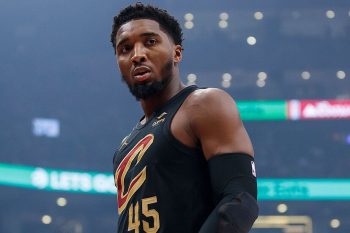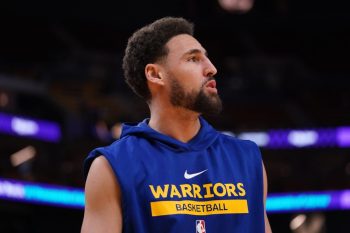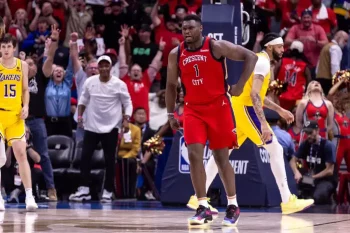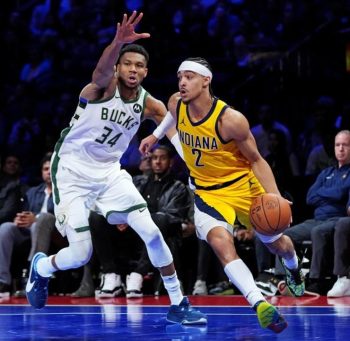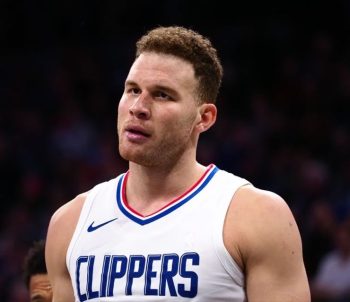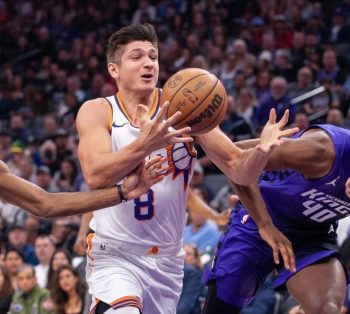NBA
NBA AM: Winning Mattered To Free Agents
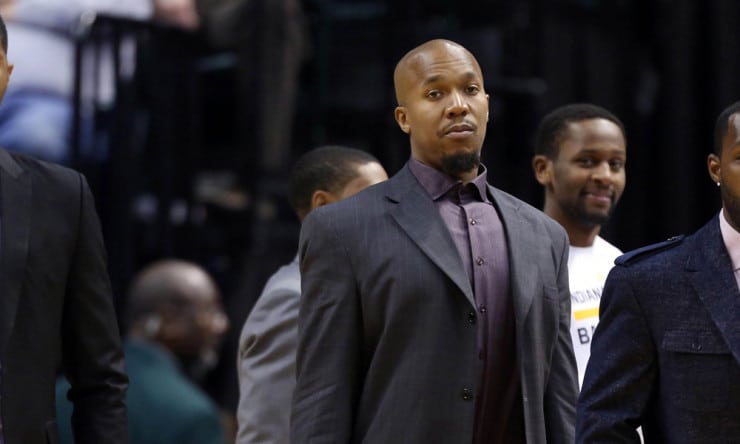
Winning Matters: A funny thing happened this NBA offseason: Money didn’t play as big a factor as some would have thought.
Without question this was one of the biggest summer paydays in NBA history – more than $3 billion in new contract money was handed out – but as big as some of the deals were, more guys chose the opportunity to win more than the chance to get an extra contract year or an extra few million.
The poster child for “winning matters most” was David West, who opted out of a $12.6 million year with the Indiana Pacers, citing that he did not think the Pacers could really contend anymore and chose to sign a one-year veteran’s minimum deal worth $1.4 million with the San Antonio Spurs.
While $12.6 million seems like a ton to risk, the salary cap gurus point out that after taxes and fees it was really a little more than $6 million (which is still a ton), but after the deal with San Antonio, it’s more like $5 million in net loss, something that may not be hard to make up if West plays well for the Spurs.
LaMarcus Aldridge also chose winning over money, with he too choosing the Spurs in free agency. While he’ll make the same amount in San Antonio next season as he would have in Portland. The way cap rules work, Aldridge may end up having left some $40 million in future contract money on the table to be on a serious contender.
The Spurs were not the only one to gain talent because of their status as a winner. Orlando’s Tobias Harris turned down a maximum contract offer sheet from Sacramento in order to remain in Orlando, leaving some $10 million on the table to remain in a situation he felt could yield the best opportunity to win.
Atlanta’s Paul Millsap turned down more money and more contract years from Orlando to remain in Atlanta.
On the flip side both the LA Lakers and New York Knicks missed out on marquee free agents, mainly because they did not offer a solid opportunity to win, despite having the most attractive markets for the off the court endorsements and business.
While no one in free agency really lost this year, the message from free agents was overwhelmingly about the chance to win, which is a refreshing change from the money grab that has become usual in free agency in sports.
How Lawson Got Traded: The Denver Nuggets had been trying to trade disgruntled point guard Ty Lawson for months so the fact that Denver got something done with Houston wasn’t surprising, it was almost expected.
The problem Denver ran into as it shopped Lawson was as much as teams want to believe in a player, especially one with Lawson’s upside, there are realities. Lawson was a malcontent last year and a key reason things fell apart for former Nuggets coach Brian Shaw. Lawson has a long history of alcoholism and has had four DUIs, including two in the last year.
That’s a huge risk for a team, especially considering Lawson was owed $12.4 million this year and had $13.21 million owed next year.
Denver found out the hard way that Lawson had almost no trade value, and his latest DUI made things even worse.
So what changed?
The Rockets were willing to trade for Lawson but were unsure of the final year on his deal. Lawson, surprisingly, agreed to waive the guarantee provision on that final year to clear the way for a trade out of Denver and to Houston.
While NBA teams and players are not permitted to re-structure a contract, they can remove guarantees from a deal if both parties agree. Lawson, seeing a ballooning NBA economy and believing in himself, agreed to waive the guarantee on the final year to get himself into a better situation.
The deal works out nicely for Houston as well. The Rockets get a starting-level point guard who averaged 15.2 points and 9.6 assists last season. They gave up very little in terms of core roster parts and have no long-term obligation to Lawson if things do not work out.
Equally having a $13.21 million non-guaranteed deal is a nice trade asset for the Rockets to play with around the draft.
Just as we covered above, Lawson is giving up a guaranteed $13.21 million to be in a better situation. He could play himself into that money or find himself a free agent when the salary cap balloons to more than $90 million.
Either way Lawson seems to have put himself in a better situation. It will be interesting to see if other players will follow suit in an effort to get out of a bad situation or more importantly, get themselves to free agency during the new cap boom.
There Is Value In Summer League: Before we go too far on this topic, let’s be clear on a few things – Summer League is the worst predictor of NBA success of anything we measure in basketball.
Former NBAers Marcus Banks, Anthony Randolph and Adam Morrison were Summer League stars and none of them are in the NBA today.
That does not mean the process is not without value, what is does mean is being unimpressive in summer play usually is not very reflective of how a player will do when surrounded by his real teammates, running the real plays and led by his real coach.
What Summer League does provide is a chance for everyone to really play, experience NBA pace, spacing and timing and understand what’s coming before games that matter are going to be played.
It also allows teams to look at different matchups, try out possible camp invites and let guys that are normally not featured in the offense have a bigger than normal role.
San Antonio’s Kyle Anderson is a prime example.
Anderson averaged 15 shots a game in seven Summer League games; there is virtually no scenario in which Anderson will see that many shots in a regular season game for the Spurs next season, but Summer League was a chance for Anderson to show he has improved and possibly earn more minutes next season.
Equally the rookies of this year’s draft class got a chance to experience the pace of lots of games back to back, and how NBA life is going to be.
The biggest challenge for young guys is adjusting to the 24-second shot clock and the extreme demands the NBA requires physically. The NBA is faster in every aspect of the game than college, and giving young guys a little taste of what to expect helps them spend the balance of the season preparing.
For the point guards, they got an opportunity to crunch game film with their coaching staffs, learn terminology and a little bit of the play book.
Both high of the profile guards, D’Aneglo Russell and Emmanuel Mudiay, found out the hard way that the shots they were used to getting are in very different places in the NBA, and that feeding their teammates isn’t always as easy as it was last year in college or in China.
It’s easy to get a little crazy about how a guy looked in Summer play, but there is a reality to Summer play that often gets lost – while teams want to see improvement, it’s usually pretty rare for a team to reshuffle their plan based on Summer League and most of the guys playing Summer League won’t have nearly the role they had in October that they had in July.
More Twitter: Make sure you are following all of our guys on Twitter to ensure you are getting the very latest from our team: @stevekylerNBA, @AlexKennedyNBA, @LangGreene, @EricPincus, @joelbrigham, @SusanBible @TommyBeer, @JabariDavisNBA , @MokeHamilton , @JCameratoNBA, @iamdpick, @jblancartenba and @CodyTaylorNBA .
